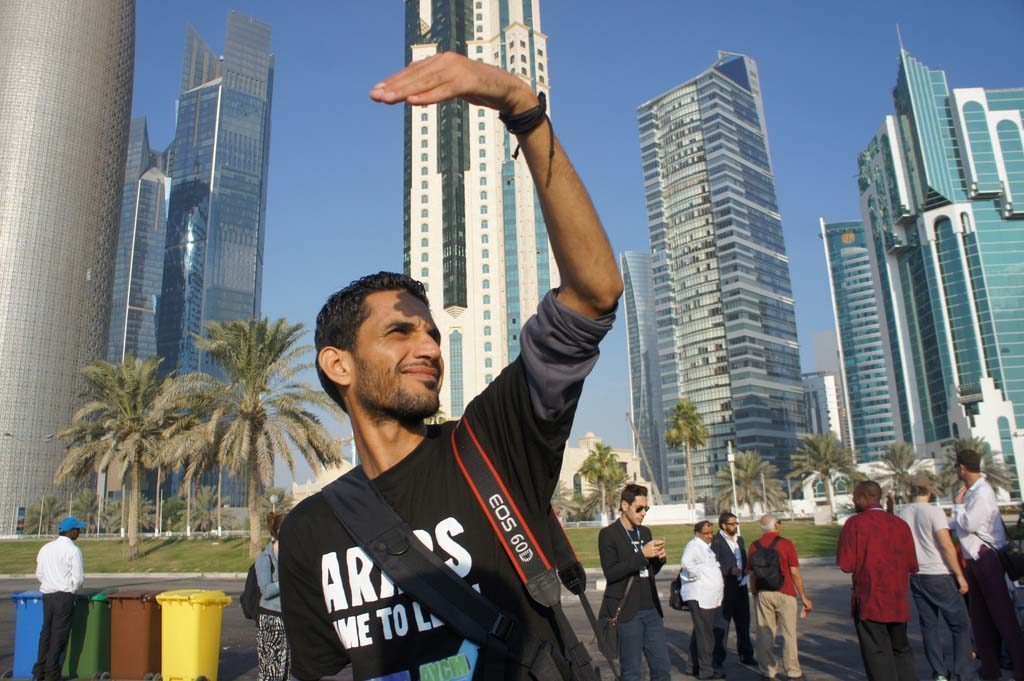
The majority of Arabs living in the Middle East and North Africa (MENA) region support Qatar’s right to host the 2022 World Cup, but some ambivalence remains about the issue, according to a new regional survey.
Some 61 percent of residents polled in the GCC said Qatar was the right choice to host the tournament, compared to 54 percent of those surveyed in several other Arab countries, the 6th Annual ASDA’A Burson-Marsteller Arab Youth Survey states.
About a quarter of youth in all the countries surveyed said they “don’t know” if Qatar was the right choice, and a little less than 20 percent believe it was the wrong choice.
Despite the ambivalence, over two-thirds of those polled said the tournament would positively impact the development of football in the MENA region.
Regional support for Qatar’s bid comes as the international community is scrutinizing the nation over new bribery allegations that could be linked to the tournament.
Qatar has denied any impropriety, and FIFA has said it will release the results of its investigation into Qatar and Russia’s 2018 bid next month.
Other findings
To obtain the survey results, polling firm PSB conducted face-to-face interviews in 16 countries with some 3,500 young Arabs between the ages of 18 and 24 years old (half male, half female). The latest poll, now in its sixth year, was taken between December 2013 and January 2014.
It covers an average of 200 respondents from each GCC countries (Qatar, Bahrain, Kuwait, Oman, Saudi Arabia and the UAE), as well as Algeria, Egypt, Iraq, Jordan, Lebanon, Libya, Morocco, Palestine, Tunisia and Yemen. Syria was excluded due to civil unrest.

The survey also concluded that the rising cost of living continues to be one of the biggest concerns of young people in the MENA region for the fourth year in a row. Additionally, anxiety about unemployment has been rising.
The report states:
“Concern about rising living costs is evenly split across the Arab world with 63% of respondents in GCC – where inflation is expected to rise this year – saying they are ‘very concerned’ compared to 62% in the remaining Arab countries surveyed.”
However, when it comes to consumer confidence, 71 percent of young people in the Gulf said they believed their countries of residence were more likely to be heading in the right direction. That’s compared to 55 percent of youth surveyed outside the GCC.

Still, since the survey was conducted, Qatar’s cost of living has gone up for four consecutive months, fueled largely by rising rent. The news has sparked concern among many residents, who said they are finding it more difficult to make ends meet.
Other key findings include:
- The majority of those surveyed said they believe civil unrest is the biggest obstacle facing the Middle East and will play a huge role in how the region’s future shapes up. Lack of democracy was ranked the second biggest obstacle.
- For the third year in a row, the UAE was chosen as the most popular country to live in, and the nation that Arab youth would most like their country to emulate. According to the report, “Youngsters in Qatar are the most favorable towards the UAE with 42% of youngsters citing it as the country they would most like to live in while respondents in Tunisia (30%), Bahrain (33%) and Lebanon (33%) are also favourable towards the UAE.”
- When asked to consider their country’s biggest ally, Arab youth chose GCC neighbors like Saudi Arabia over Western nations.
- Concerns about obesity and diabetes are growing, and Arab youth are not confident that the healthcare system in their countries has improved over the past year.
- There is little concern about climate change, and some 70 percent of young Arabs believe they should continue to have subsidized utilities and petrol.
- TV continues to be the most popular source of news (for the past six years), but social networks are gaining.
Here is a summary of the key findings:
Thoughts?







